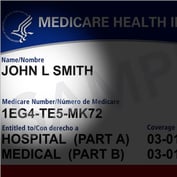An Institute of Medicine (IOM) panel has developed a middle-of-the-road framework for designing of an “essential health benefits” package – and now the hard part starts.
The committee at the IOM, Washington, prepared the report to help implement a provision that calls for the secretary of Health and Human Services (HHS) to develop an “essential health benefits” package that all major medical plans must offer, to keep plans from competing on price by skimping on important benefits. The package requirements are supposed to take effect Jan. 1, 2014.
Some had hoped that the IOM committee would identify specific benefits that ought to be included in a plan, but the IOM committee noted that it was asked only to develop a framework for evaluating candidate benefits, not a list of benefits, and it stuck to that assignment.
Committee members repeatedly emphasized the importance of cost when they presented the report at a press conference Washington.
Karen Ignagni, president of America’s Health Insurance Plans (AHIP), Washington, put out a statement calling the report “thoughtful” and noting the IOM panel’s emphasis on the need to strike a balance between comprehensiveness of coverage and affordability, and the IOM panel’s suggestion that the benefits package ought to be similar to what small employers now offer.
“The recommendation that the initial EHB package reflect the scope of benefits and design provided under a typical small employer plan is an important step toward maintaining affordability,” Ignagni said in the statement.
Ignagni also praised the panel’s discussion of the need for a focus on “medical effectiveness, safety and relative value.”








 October 10, 2011 at 11:03 AM
October 10, 2011 at 11:03 AM










